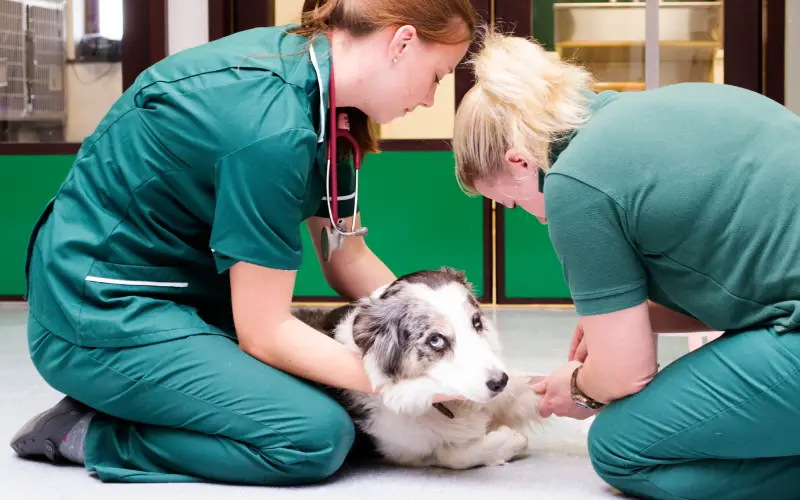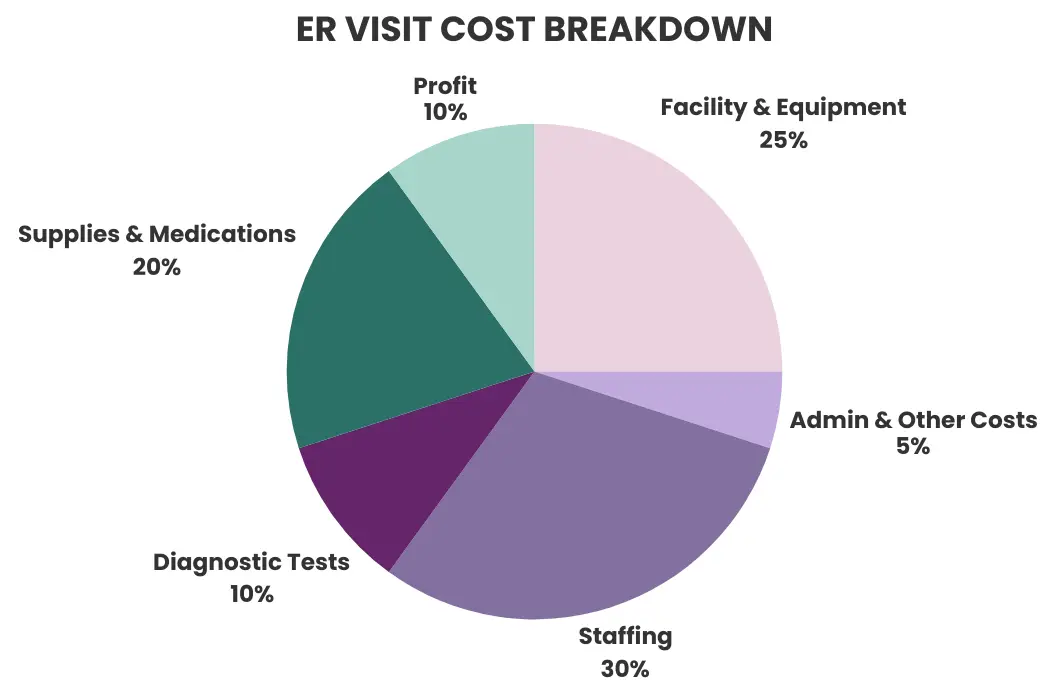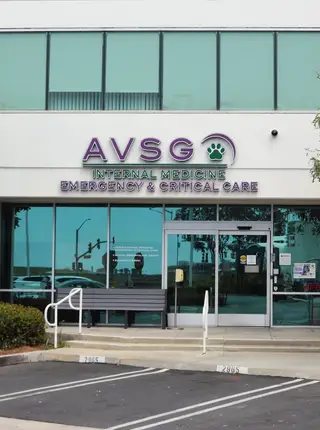As pet owners, we know our furry companions can't tell us when something's wrong, but they can show us. While some symptoms are minor and can wait for a regular veterinary appointment, others may indicate a medical emergency that requires immediate attention. Knowing the signs can save your pet's life.
Here are five common signs that your pet may need emergency medical care:
1. Difficulty Breathing
If your pet is having trouble breathing, it's a red flag that should never be ignored. Labored or rapid breathing, gasping for air, or extended neck and open-mouth breathing (especially in cats) may indicate a serious condition such as heart failure, fluid in the lungs, and allergic reaction, heatstroke, or airway obstruction.
What to do: Try to keep your pet calm and cool. Avoid exerting them further and head to the nearest emergency veterinary hospital immediately.
2. Vomiting or Diarrhea (Especially with Blood)
Occasional vomiting or diarrhea may not be urgent, but if your pet is experiencing repeated episodes, is unable to keep water down, or you notice blood in the vomit or stool, it could be a sign of something far more serious such as poisoning, pancreatitis, gastrointestinal obstruction, or an infectious disease. Other warning signs include lethargy, a bloated or painful abdomen, or refusal to eat.
What to do: Do not attempt to treat vomiting or diarrhea with over-the-counter human medications. Seek emergency care, especially if your pet is a young puppy or kitten, a senior, or has a known medical condition.
3. Collapse or Inability to Stand
If your pet suddenly collapses, is too weak to stand, or loses consciousness, it may be due to something only a vet can diagnose and treat. Even if your pet appears to recover quickly, any unexplained collapse should be considered an emergency.
What to do: Safely transport your pet to a veterinary emergency hospital as soon as possible. Try to keep them calm and avoid any further stress.
4. Trauma or Accidents
Pets that have been hit by a car, bitten by another animal, fallen from a height, or suffered a blunt force trauma may not show external injuries, but internal injuries are still possible, and can be life-threatening. Pets often hide pain well, and internal bleeding or organ damage can go unnoticed without a veterinary exam.
What to do: Even if your pet seems okay after an accident, err on the side of caution and have them evaluated by a veterinarian. Internal injuries can progress quickly.
5. Trouble Urinating or Defecating
Straining to urinate, frequent attempts without producing urine, or vocalizing in pain during elimination can all be signs of a dangerous urinary blockage, especially in male cats, who are particularly prone to this condition. If untreated, a urinary blockage can be fatal in less than 48 hours. Constipation that lasts more than 48 hours, especially if accompanied by vomiting or lethargy, may also require emergency care.
What to do: If your pet is having difficulty urinating, do not wait. Bring them to a veterinarian immediately, as this is a true medical emergency.

When in Doubt, Give Us a Call
If you're ever unsure whether something qualifies as an emergency, it's always better to be safe than sorry. If you have any questions or concerns, call us at 949-653-9300 or if you're in Southern California, we welcome your visit to our Emergency and Critical Care facility, open 24 hours a day, 7 days a week.
Your quick response can make all the difference when it comes to your pet's health and comfort. Your pet depends on you to recognize when something is wrong. Knowing the signs and acting fast could save their life.
The Cost of Emergency & Critical Care: What to expect at AVSG-IMECC
When your pet needs emergency care, it's often during one of the most stressful and emotional moments of pet ownership. And on top of the worry about your pet's health, there's often another concern: the cost.
Why Emergency Care Costs More
Just like a human health emergency room, our hospital is open 24/7/365, including nights, weekends, and holidays. That means we're always fully staffed with experienced emergency veterinarians, licensed technicians, and support staff who are specially trained to provide urgent, life-saving care, no matter the hour.
Unlike human health hospitals, veterinary facilities do not receive government funding or subsidies. While the quality of our training, technology, and equipment is often on par with human medicine, we operate independently. In fact, the same diagnostic tools and procedures used in both human and veterinary medicine typically cost significantly less in a veterinary setting, but they're still a meaningful investment to acquire and maintain.
Where Does Your Money Go?
Every dollar spent on emergency care helps support:
- Highly trained staff on-site 24/7
- Advanced diagnostic tools, including in-house laboratory equipment, digital X-ray, ultrasound, and CT
- Fully equipped surgical suites
- Life-saving medications and critical care treatments
- Around-the-clock monitoring and nursing care
While we are a for-profit business, our average profit margin is modest (approximately 10%). The majority of your payment goes directly towards patient care, medical supplies, and supporting the skilled professionals caring for your pet.
Cost Breakdown - Where does your money go?
The pie chart below shows an approximate cost breakdown for an average emergency vet visit at AVSG:

Payment Options to Help You Plan
We never want finances to prevent your pet from getting the care they need. That’s why we offer multiple ways to manage the cost of treatment:
- Credit cards: We accept all major credit cards.
- CareCredit: A health-focused credit line that allows you to split costs into manageable monthly payments.
- Scratch Pay: Transparent payment plan tailored to a variety of budgets.
- Pet insurance: We provide detailed invoices and medical records to help you file your claims quickly and efficiently.
Before beginning treatment, our team will always discuss estimated costs and payment options with you, so you can feel informed, respected, and supported in your decisions.
Our Commitment to You
Emergencies can't be predicted, but they can be met with compassion, expertise, and transparency. At AVSG-IMECC, we're committed to providing your pet with the highest standard of emergency care, and to helping you navigate the financial side with clarity and kindness.
Because when your pet is in crisis, you deserve to focus on what matters most: being there for them.
The information contained in the article is for informational purposes only and is not intended to take the place of the advice of a veterinarian.




